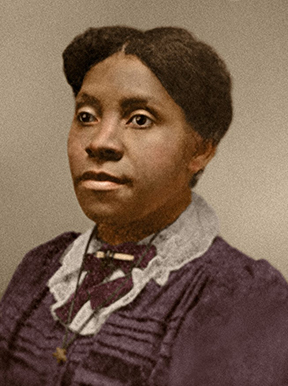Before the Civil War in 1789, famed Quaker Moses Brown initiated reparations, as documented in Brown University’s Slavery and Justice report. Callie House, known as the “Matriarch for Reparations,” spearheaded Black demands for restitution. Callie was born in 1861, and basically grew up free. She raised five kids as a widowed washerwoman living in Nashville. An 1891 pamphlet, Freedmen’s Pension Bill: A Plea for American Freedmen, sparked Callie’s lifelong reparations advocacy.
The online encyclopedia BlackPast chronicles, “With the help of Isaiah Dickerson, House chartered the National Ex-Slave Mutual Relief, Bounty, and Pension Association in 1898 and was named the secretary of this new organization. Eventually, House became the leader of the organization. In this position, she traveled across the South, spreading the idea of reparations in every former slave state with relentless zeal. During her 1897-1899 lecture tour, the association’s membership increased by 34,000 mainly through her efforts. By 1900, its nationwide membership was estimated to be around 300,000.” The Ex-Slave Pension Association pursued reparations through conventions, and lobbying Congress.
The topic of reparations has always been divisive. Even then, as now, reparations ignited controversy, including resistance from prominent Black civic leaders. Callie and her organization faced opposition from both Black leaders and White government officials. The passage of segregation laws throughout the South fostered this antagonistic climate. Black leaders, such as Booker T. Washington and W. E. B. Du Bois largely ignored the reparations movement, focusing their energy on promoting education and defending equal treatment for Blacks within a hostile post-war environment. White Southerners viewed the movement with suspicion; they saw Callie’s organizing efforts as confusing and misleading to Blacks. From the White perspective, there was no chance of Congress passing reparations legislation, so Whites assumed that the organizing efforts were a ruse to defraud poor Blacks.
In response to alleged complaints from White constituents, the U.S. Pensions Bureau, the governmental agency that supervised the disbursement of money to Union veterans, started covert surveillance on the association. In 1916, the U.S. Postmaster General indicted Callie and the other leaders, claiming that they obtained money from ex-slaves by fraudulent circulars proclaiming that pensions and reparations were forthcoming. She was convicted, served time in prison for one year, and died of cancer in Nashville, on June 6,
The Black Press: Preserving Our Heritage!
“Ebony Moments” is a FREE Iconic picture with a short caption.
“E-M” should run separately from “LBH.”




